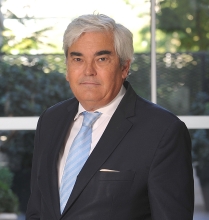Transport & Shipping Newsletter - April 2018 - News
Update of regulations on the civil use of drones
Since 2014, when the civil use of RPAS (remotely piloted aircraft systems) was regulated for the first time in Spain, the number of aircraft, pilots, registered operators and manufacturers has grown at a dizzying speed, making it necessary to adapt and establish a broader legal framework that permits the safe development of a technologically cutting-edge and emerging industry, through Royal Decree 1036/2017, regulating the civil use of remotely piloted aircraft, approved on December 19, 2017.
Among the sovereign powers of Spain within its own territory, the Chicago Convention (1944 Convention on International Civil Aviation) provides that no aircraft capable of being flown without a pilot shall be flown without a pilot over the territory of a contracting State without special authorization by that State and in accordance with the terms of such authorization, at all times avoiding any danger.
Royal Decree 1036/2017 is applicable, in the territory and air space under Spanish sovereignty, to:
- civil RPAS whose maximum mass at takeoff is less than 150 kg;
- RPAS whose maximum mass at takeoff is greater than 150 kg if they carry out customs, police, search and rescue, fire extinguishment and other operations, or are not governed by Regulation (EC) 216/2009;
- operators and any operations carried out with them;
- pilots and other crew members involved in the operation;
- approved training organizations;
- airworthiness and organizations involved therein;
- recreational activities.
The aforesaid Royal Decree lays down the rules on licensing and airworthiness, the conditions for identifying RPAS, the measures used to limit operations for reasons of public safety, the rules on communication with the Ministry of the Interior for operation over urban agglomerations of buildings in cities, towns or inhabited places or outdoor gatherings of people.
With respect to the conditions for operating this type of aircraft, the use of RPAS as a means of transportation, both of goods and of passengers, is expressly excluded, given that objective safety conditions for this type of operation do not currently exist at international level.
Supplementary rules to the ROTT: transfer of VTC licenses
Given the increase in the number of new authorizations for the rental of chauffer driven vehicles (known as VTC licenses), whose grant is limited by regulation, and in order to guarantee the ultimate purpose for which they are granted, i.e., operation based on transport demands, certain measures have been established with a view to restricting the transfer of VTC licenses until a period of time, set at two years from the time they were first obtained, has elapsed.
After that period, in the event of transfer, the vehicle under the VTC license must meet the technical conditions stipulated in article 181.2 the Road Transport Regulations (Reglamento del Ordenación del Transporte Terrestre or ROTT). These include the condition that vehicles have no more than 9 seats, including that of the driver, and that they have the following characteristics, notwithstanding any others that serve to enhance their conditions: a) tax horsepower (CVR) of the motor equal to or greater than 12; b) minimum exterior length, measured from one end of the vehicle to the other, equal to or greater than 4.60 meters. The foregoing two requirements do not have to be met if the energy source of the vehicle under the license is electricity, hydrogen, biofuels, synthetic and paraffin fuels, natural gas, liquefied petroleum gas or any other expressly indicated as an alternative to classic fossil fuels. Vehicles cannot continue to be used under a VTC license after they have reached ten years of age, counted from their first license, with exceptions.
The rule also stipulates a number of measures used to control communications with the Public Authority, which must be served by electronic means, prior to the commencement of each service provided under the license.
Amendment of the Spanish Land Transport Law (LOTT) via the urgent procedure for the VTC licenses issue
On April 20 the government approved via the urgent procedure (royal decree-law) an amendment of the LOTT on VTC licenses (passenger transport licenses). It has retained what is known as the 1:30 ratio for granting VTC licenses, meaning one license of this type is granted for every thirty existing licenses for taxi passenger transport. It has also established that at least 80% of the transport services for which each license is issued must be provided within the autonomous community where they are domiciled.
A royal decree-law may only be used as an instrument for passing legislation if there is an extraordinary and urgent need meeting its enabling requirement. According to the preamble to the royal decree-law, published in the BOE on April 21, this requirement is met because “an exponential increase is occurring in the number of licenses for hire vehicles with drivers, not originally foreseeable by the competent authorities, which is starting to have an immediate and significant effect on the provision of other modes of transport and, very especially, on the services provided by taxis in urban areas, which, in view of their status as basic services in the public interest that has traditionally been conferred on them in that area in the local and autonomous community legislation, are heavily regulated, with consequences that besides creating a conflict between the two professional sectors concerned are showing signs of having repercussions on the service users themselves”.
PGE Project: reduction of the cargo fee
The draft General State Budget Law for 2018 provides for a 10% reduction of the basic amount of the cargo fee in Spanish ports of general interest.
The basic amounts of the ship fee, passenger fee and fee for using the transit zone remain unchanged.
Contact

